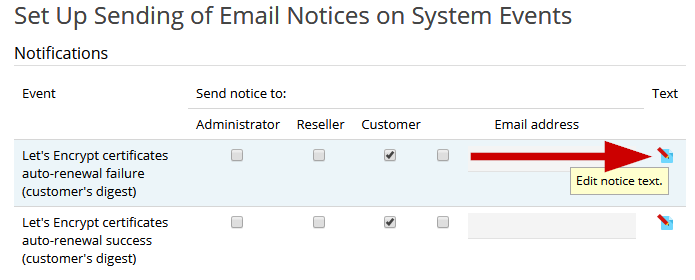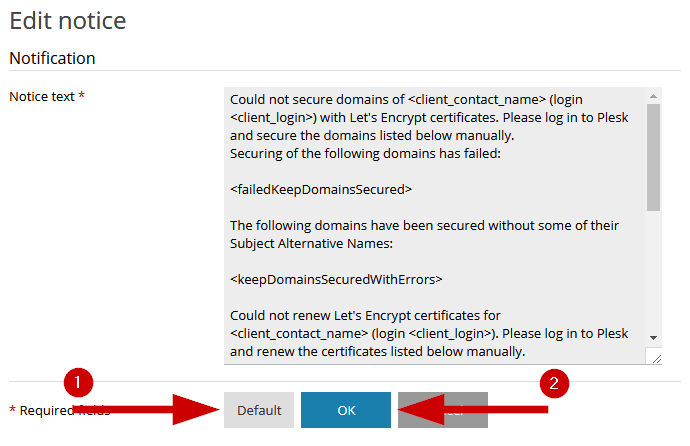Symptoms
-
The following notification emails recieved:
Could not renew Let's Encrypt certificates for John Doe (login johndoe). Please log in to Plesk and renew the certificates listed below manually.
Renewal of the following Let's Encrypt certificates has failed:<none>
The following Let's Encrypt certificates have been renewed without some of their Subject Alternative Names:
<none>
Legend:
[+] This domain is secure. The domain's Let's Encrypt SSL/TLS certificate has been renewed.
[-] This domain is not secure. Either the domain's Let's Encrypt SSL/TLS certificate could not be renewed or the domain name was excluded from the certificate. You need to either renew the certificate manually or to request a new one to secure this domain.
Cause
Let's Encrypt extension bug with ID EXTLETSENC-415 : Notification templates are not updated if they were modified prior to upgrade to Let's Encrypt v2.5.0-270.
Resolution
As a workaround, reset Let's Encrypt certificates auto-renewal notification to the default one:
-
Navigate to Tools & Settings > Notifications.
-
Click Edit notice text next to Let's Encrypt certificates auto-renewal failure (customer's digest):

-
Click Default and OK:

-
Repeat steps 3 and 4 for the Let's Encrypt certificates auto-renewal success (customer's digest) entry.